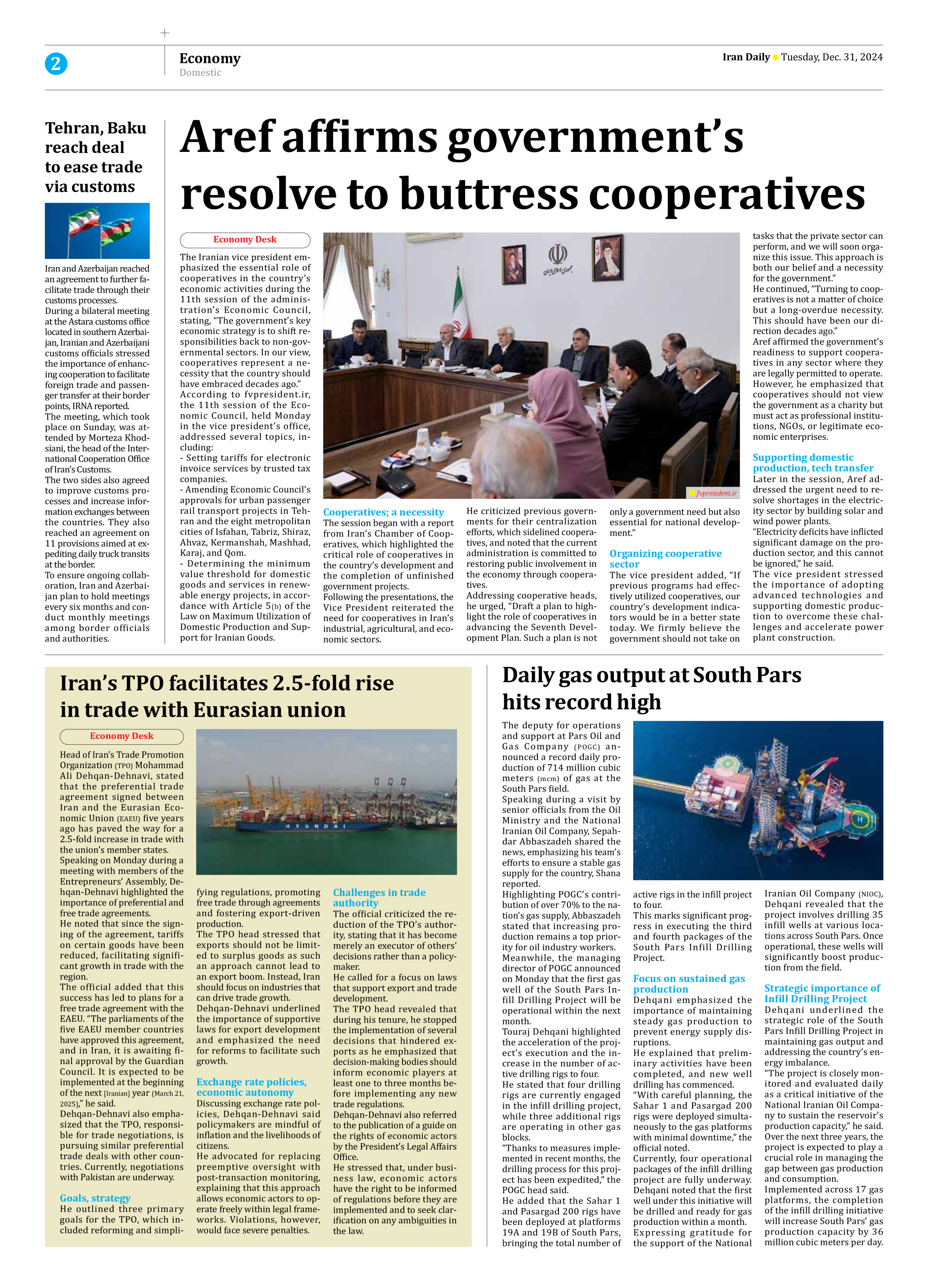
Aref affirms government’s resolve to buttress cooperatives
The Iranian vice president emphasized the essential role of cooperatives in the country’s economic activities during the 11th session of the administration’s Economic Council, stating, “The government’s key economic strategy is to shift responsibilities back to non-governmental sectors. In our view, cooperatives represent a necessity that the country should have embraced decades ago.”
According to fvpresident.ir, the 11th session of the Economic Council, held Monday in the vice president’s office, addressed several topics, including:
- Setting tariffs for electronic invoice services by trusted tax companies.
- Amending Economic Council’s approvals for urban passenger rail transport projects in Tehran and the eight metropolitan cities of Isfahan, Tabriz, Shiraz, Ahvaz, Kermanshah, Mashhad, Karaj, and Qom.
- Determining the minimum value threshold for domestic goods and services in renewable energy projects, in accordance with Article 5(b) of the Law on Maximum Utilization of Domestic Production and Support for Iranian Goods.
Cooperatives; a necessity
The session began with a report from Iran’s Chamber of Cooperatives, which highlighted the critical role of cooperatives in the country’s development and the completion of unfinished government projects.
Following the presentations, the Vice President reiterated the need for cooperatives in Iran’s industrial, agricultural, and economic sectors.
He criticized previous governments for their centralization efforts, which sidelined cooperatives, and noted that the current administration is committed to restoring public involvement in the economy through cooperatives.
Addressing cooperative heads, he urged, “Draft a plan to highlight the role of cooperatives in advancing the Seventh Development Plan. Such a plan is not only a government need but also essential for national development.”
Organizing cooperative sector
The vice president added, “If previous programs had effectively utilized cooperatives, our country’s development indicators would be in a better state today. We firmly believe the government should not take on tasks that the private sector can perform, and we will soon organize this issue. This approach is both our belief and a necessity for the government.”
He continued, “Turning to cooperatives is not a matter of choice but a long-overdue necessity. This should have been our direction decades ago.”
Aref affirmed the government’s readiness to support cooperatives in any sector where they are legally permitted to operate.
However, he emphasized that cooperatives should not view the government as a charity but must act as professional institutions, NGOs, or legitimate economic enterprises.
Supporting domestic production, tech transfer
Later in the session, Aref addressed the urgent need to resolve shortages in the electricity sector by building solar and wind power plants.
“Electricity deficits have inflicted significant damage on the production sector, and this cannot be ignored,” he said.
The vice president stressed the importance of adopting advanced technologies and supporting domestic production to overcome these challenges and accelerate power plant construction.







